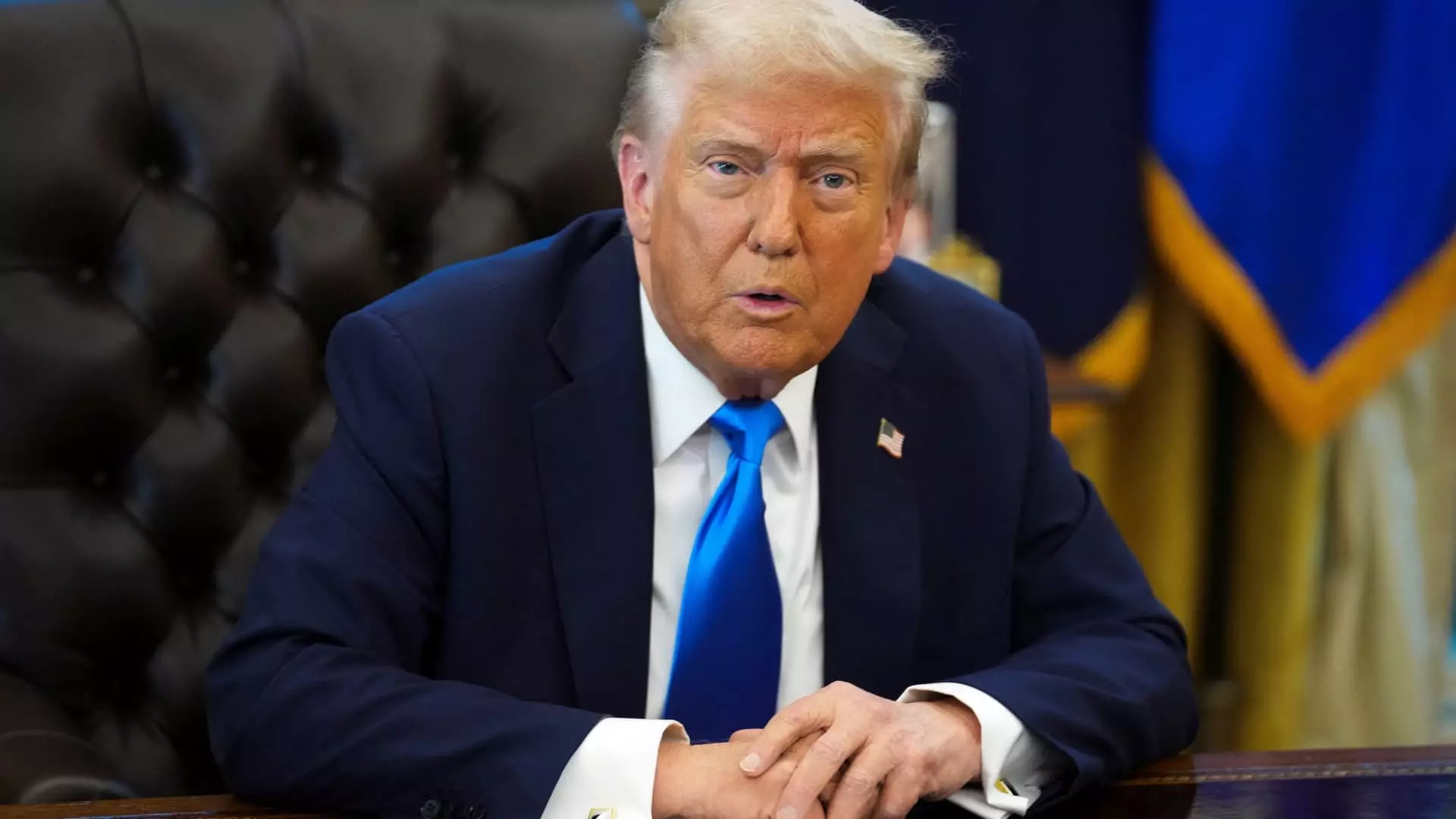The ongoing saga of TikTok’s potential United States operation is riddled with patriotic rhetoric that serves as a smokescreen for deeper geopolitical and economic interests. When President Trump publicly touts the involvement of American entrepreneurs like Larry Ellison and Michael Dell, or hints at Murdoch’s influence, it is tempting to view these developments through a lens of national loyalty. But a critical perspective reveals something far more complex: a strategic play rooted not solely in safeguarding national security, but in reshaping the global digital economy to favor U.S. corporate influence while appeasing political pressures. The deployment of patriotic language—calling investors “American patriots”—obscures the reality that these figures are ultimately driven by profit and power, not patriotism.
The rhetoric around returning control of TikTok’s algorithms and data practices to U.S. entities becomes a political checklist rather than a genuine effort to secure citizens’ privacy. U.S. officials repeating that “six of the seven board members will be American” and claiming control over the app’s algorithm shape a narrative that downplays the complexities involved. It is a convenient oversimplification that masks the primary concern: controlling a platform that is arguably more influential than traditional media, yet remains largely unregulated in its data practices.
Economic Interests Cloaked in Patriotism
This spectacle of political negotiation is driven by economic interests masquerading as a matter of national security. The involvement of corporate giants like Oracle and Dell signifies more than a desire to protect citizen data—they symbolize a broader effort to consolidate digital influence within the U.S. tech ecosystem. These companies, largely driven by market competition, stand to benefit from the deal’s facilitation, creating a cozy alliance between government interests and corporate profits.
Likewise, Murdoch’s potential involvement, as hinted by Trump, suggests a strategic alignment of media and technological influence. While a CNBC source indicates Murdoch’s Fox Corporation might not be directly involved, the symbolic importance of his name underscores the intertwined nature of media power and digital influence. It’s not just about protecting users from potential Chinese surveillance; it’s about embedding U.S. corporate interests into the core of a globally dominant platform, ensuring dominance in the next frontier of communication and social engagement.
Diplomatic Theatre and Its Pitfalls
The diplomatic exchanges between Trump, Xi Jinping, and Chinese officials display the delicate interplay between economic sovereignty and geopolitical competition. While both sides claim progress, the Chinese government’s statements reflect cautious skepticism, signaling that substantial gaps remain. China’s position underscores its insistence on respecting market rules, framing its stance as fair and open, while implicitly warning against unfair U.S. restrictions.
This diplomatic theatre often obscures the underlying power dynamics at play. The U.S. proclaims it is crafting a “fair” and “non-discriminatory” environment, but the reality is that this is a strategic move to insulate U.S. tech firms from Chinese competition. Meanwhile, in Beijing, the narrative is one of resistance to what is perceived as economic encirclement and hegemonic ambitions by the West. Ultimately, the negotiations reveal not a genuine desire for mutual benefit, but a game of leverage where both sides seek to maximize their economic and strategic interests.
The Fallacy of a ‘Secure’ Digital Frontier
It is naïve to assume that this intricate dance of negotiations will lead to a truly secure or fair digital landscape. The emphasis on “data privacy” and “algorithm control” has more to do with satisfying domestic political constituencies and global power plays than with safeguarding individual rights. The idea that American-led oversight can prevent potential threats ignores the broader implications of digital sovereignty, where the lines between security and economic dominance are blurred.
Furthermore, framing this debate within patriotic terms oversimplifies the complex reality of modern geopolitics. The focus on who controls TikTok’s backend distracts from the larger question: why are digital platforms so entangled with issues of sovereignty and trust in the first place? The bottom line is that these negotiations are emblematic of an urgent need to rethink how nations manage digital influence—not through protectionist or hegemonic strategies, but through transparent, ethical frameworks that prioritize citizens’ rights over corporate or political gains.

